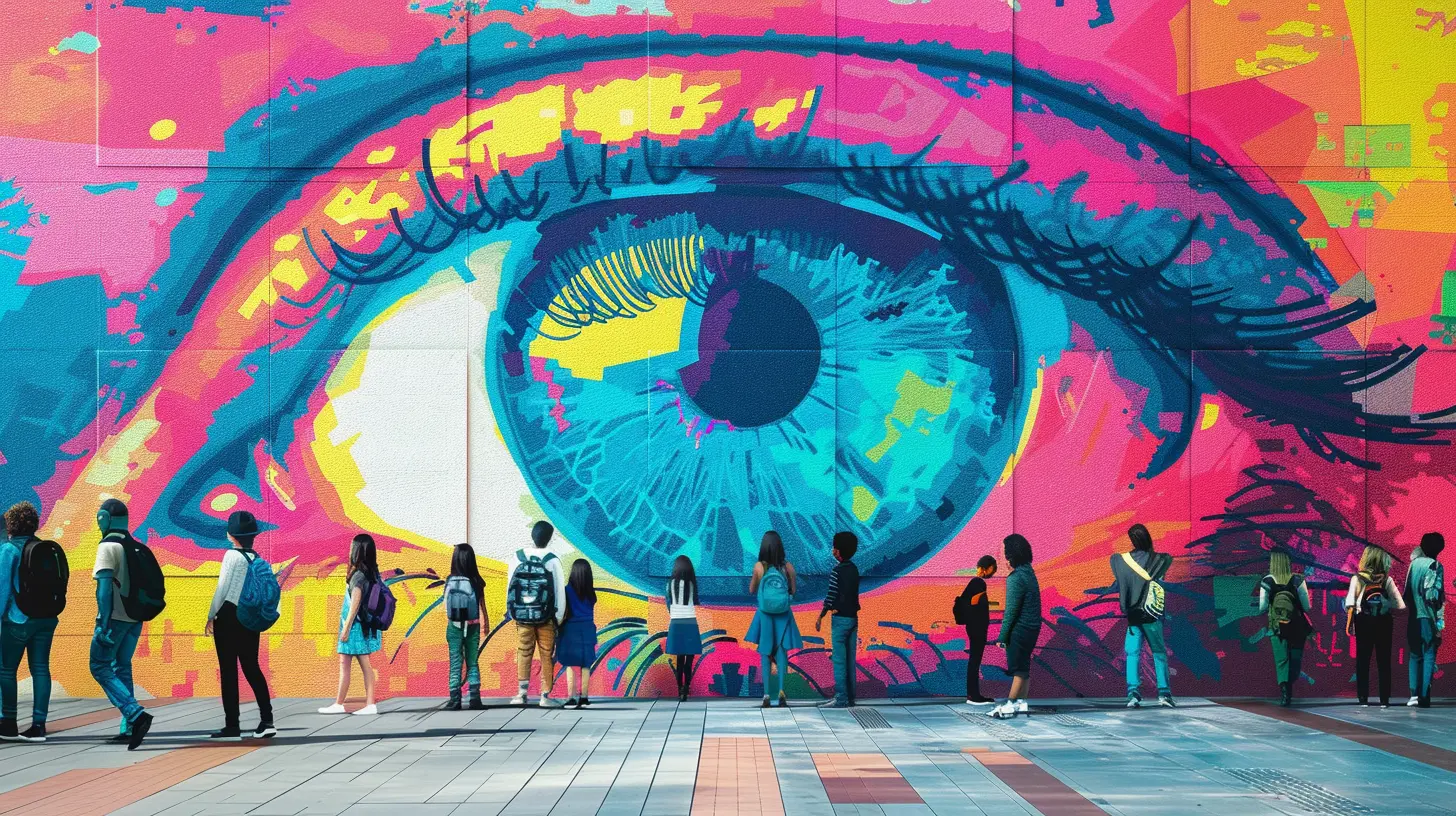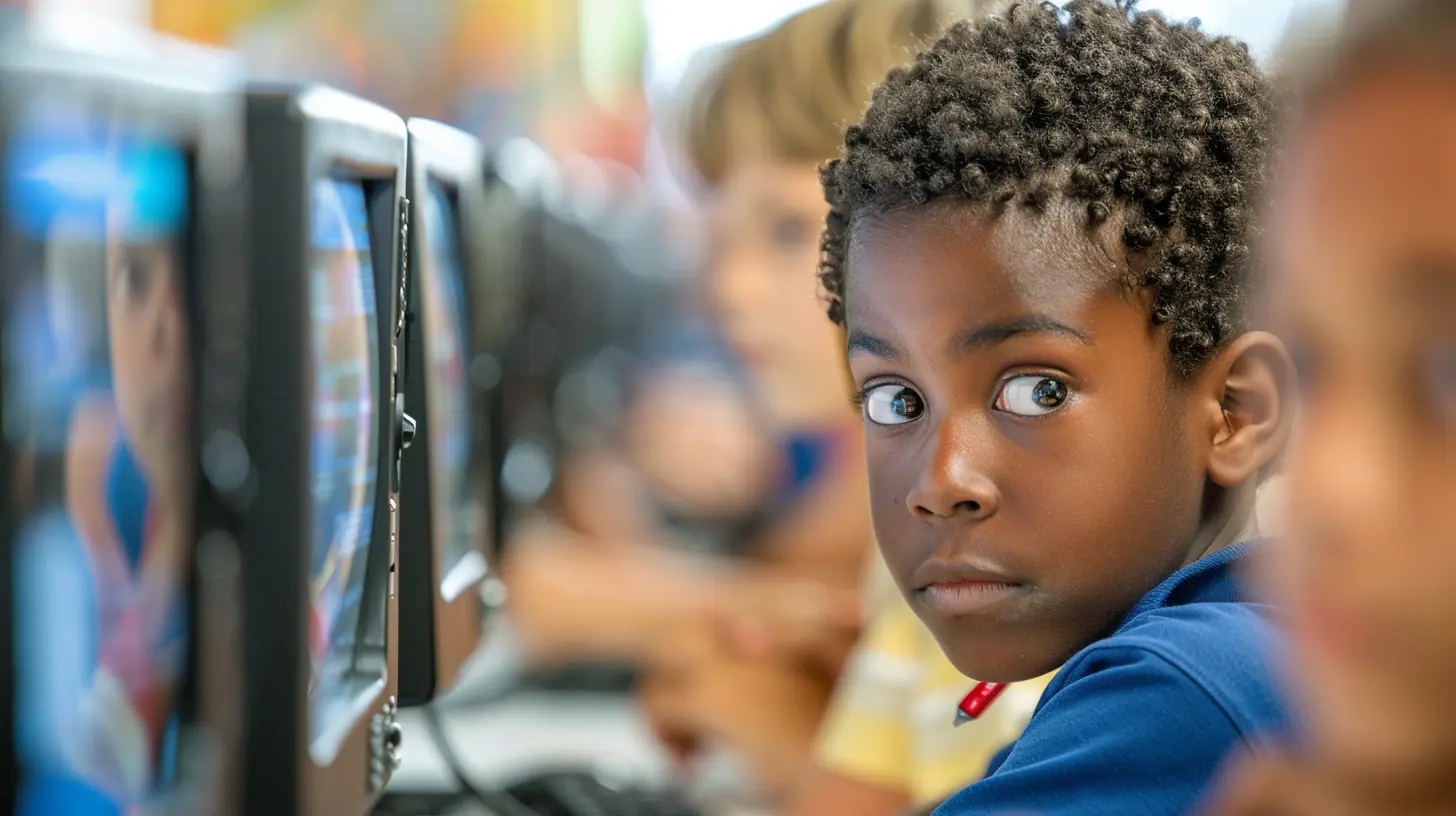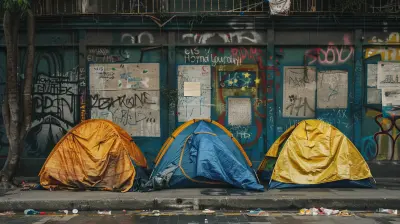Education Policy and the Ethics of School Surveillance Technologies
5 July 2025
Ah, school. A place of learning, growth, and…constant surveillance?
Yes, folks, the modern education system isn’t just about books and blackboards anymore; it’s about cameras, keystroke loggers, and AI-powered monitoring software. Because, apparently, the best way to nurture young minds is to watch their every digital and physical move like they're starring in their own low-budget version of Big Brother.
But hey, let’s give the education system some credit. Who wouldn’t want to swap out trust and healthy student-teacher relationships for a dystopian-level surveillance network? What could possibly go wrong? Oh, just a few tiny ethical dilemmas, a dash of privacy invasion, and the possibility of turning schools into high-security prisons. No big deal.
Let’s unpack this digital panopticon, shall we? 
The Rise of School Surveillance Technologies
Once upon a time, the worst thing students had to worry about was getting caught passing notes in class. Now, thanks to technological advancements, school administrators have much more sophisticated ways to invade privacy—because manually catching troublemakers is so last decade.These days, schools use:
- AI-powered monitoring software – because obviously, a robot should decide if a student’s message is “threatening” or just a joke.
- Facial recognition cameras – because a school ID card is just too outdated.
- Keystroke trackers – perfect for ensuring that students never Google anything “inappropriate” (or, you know, anything at all).
- GPS tracking on school devices – because even after school, Big Brother—I mean, your school—wants to know where you are.
And all of this is supposedly for the safety of students. Because nothing says “we care” like treating high schoolers as potential criminals from the moment they log in. 
The "Safety" Argument: A Convenient Cover-Up?
So, why do schools insist on turning classrooms into mini-surveillance states? Well, they claim it’s for:- Preventing violence and school shootings – Because obviously, predictive AI can totally read minds and stop a crime before it happens.
- Detecting cyberbullying – Ah yes, because bullying only happens online and not, say, in the hallways where teachers could address it in person.
- Protecting students from self-harm – A noble cause, but let's be real: spying on search histories is about as effective as putting a Band-Aid on a broken bone.
It’s almost as if schools believe that no teenager has ever found ways to bypass restrictions. (Spoiler: They have. And they always will.) 
Privacy? What’s That?
You know that thing where people have a right to not be watched 24/7? Yeah, apparently students don’t get that luxury.Who Owns Student Data?
When schools collect heaps of data—messages, locations, browser histories—who actually owns it? The students? Their parents? Oh no, it’s often handed over to third-party companies who assure us they’ll handle it so responsibly (until their next data breach).The Slippery Slope to Surveillance Culture
Once you normalize watching kids like hawks at school, what stops it from extending to the rest of their lives? Today, it’s keystroke tracking; tomorrow, it's social credit scores. The next thing you know, we're all living in an episode of Black Mirror.False Positives and Overreach
Ever made a joke in a text that, out of context, sounded suspicious? Congratulations! Under school surveillance, that could trigger an investigation.AI can’t understand sarcasm, intent, or nuance—so, naturally, it’s now in charge of policing student behavior. Fantastic.

The Psychological Effects of Constant Surveillance
If you’ve ever worked for a micromanaging boss who checked your every move, you probably remember how motivated and inspired you felt. Oh wait, no—you were anxious, paranoid, and pretty much ready to quit.So imagine how students feel knowing they're being watched at all times.
- Increased stress and anxiety – Nothing like the fear of being flagged by an algorithm to make learning extra fun!
- Lack of trust – Because nothing builds strong student-teacher relationships like suspicion and constant oversight.
- Self-censorship – Why bother expressing yourself when a misinterpreted joke could land you in the principal’s office?
It’s almost as if treating students like criminals makes them feel… less safe and more anxious. Who could’ve guessed?
The Ethics of Watching Kids Like They're Suspects
Let’s get one thing clear: if you have to choose between protecting student privacy and enforcing mass surveillance, you’ve already made a wrong turn.Consent? What Consent?
Do students actually consent to being monitored? Not really. Schools make these decisions for them, often without meaningful discussions. Some parents don’t even realize just how much data is being collected until it’s too late.Bias in Surveillance Tech
AI surveillance tools have a stellar track record of racial and socioeconomic bias (read: they’re often wrong and disproportionately target minority students).If we’re actually trying to create fair and inclusive learning environments, handing over discipline to flawed algorithms seems like a spectacularly bad idea.
The Illusion of Security
Here’s the thing: No amount of surveillance can prevent every tragedy. If safety is the goal, maybe schools should focus on mental health resources, conflict resolution education, and building real human relationships—not just plastering cameras in every corner.What Should Schools Do Instead?
Fine, fine. If we’re going to criticize school surveillance tech, let's at least suggest some alternatives.1. Invest in mental health services – Maybe instead of monitoring every Google search, we hire more counselors who can actually support students.
2. Teach digital literacy instead of enforcing digital policing – Equip students with critical thinking skills instead of treating them like hackers-in-training.
3. Focus on community-building and trust – Schools should be places of learning, not authoritarian surveillance hubs.
4. Give students a voice in privacy policies – They’re the ones being watched; maybe, just maybe, they should have a say.
At the end of the day, technology should support education, not turn it into a real-life episode of 1984.
The Bottom Line
Surveillance tech in schools might be well-intentioned, but the road to a total invasion of privacy is paved with "good intentions." While student safety is important, treating kids like suspects, selling their data to third parties, and stripping away their rights probably isn’t the answer.Maybe, just maybe, schools should trust students a little more—and leave the dystopian spy tactics to sci-fi movies.
all images in this post were generated using AI tools
Category:
Education PolicyAuthor:

Monica O`Neal
Discussion
rate this article
2 comments
Colton Jenkins
Who knew school surveillance could spark a debate fiercer than cafeteria pizza toppings? 🍕 Let’s navigate this tech-tightrope while keeping ethics as our trusty guide—after all, no one wants Big Brother in the classroom!
November 6, 2025 at 1:55 PM

Monica O`Neal
Absolutely! Balancing technology and ethics in schools is crucial. We must ensure that surveillance enhances safety without compromising students' privacy.
Quill Hensley
This article highlights the crucial balance between ensuring student safety and respecting privacy. It’s essential to critically evaluate how surveillance technologies impact educational environments and ethics.
July 13, 2025 at 11:24 AM

Monica O`Neal
Thank you for your thoughtful comment! It's vital to navigate the complex intersection of safety, privacy, and ethics in our educational systems. Your insights highlight the importance of ongoing dialogue in this area.


